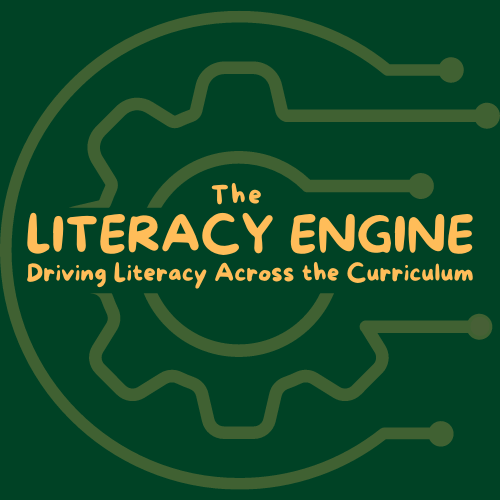The difference between “Literacy” and “Disciplinary Literacy”

“Disciplinary Literacy” has risen to prominence in recent years with approaches differing wildly between schools. The EEF report on improving literacy in secondary schools cites it as being a key factor in successful literacy development. There is vast variance in what “disciplinary literacy” means across schools however. In some schools it means Drop Everything And Read sessions in different subjects across the timetable. In others, students are encouraged to “Read Like A…” by posters in each subject. In some schools, students are taught bespoke, subject specific vocabulary and are guided in how they approach individual texts. The practicalities of how these things translate into impact in a lesson are ultimately the success or failure of a literacy strategy. So it is worth stopping, at this point to, have a think about what disciplinary literacy actually is and where it fits into an overall literacy strategy.
Disciplinary literacy and general literacy are two distinct concepts that highlight the diverse ways in which reading, writing, and communication skills are applied across different academic disciplines and real-life contexts. While general literacy encompasses the foundational skills necessary for reading, writing, and comprehension across various subjects, disciplinary literacy focuses on the specialised literacy practices within specific disciplines or fields of study. A successful literacy strategy must take into account how students develop skills and knowledge across all aspects of literacy to be effective.
What is “Literacy”?
General literacy refers to the fundamental skills that individuals acquire to understand, interpret, and communicate ideas in a broad range of contexts. It encompasses basic reading fluency, comprehension, vocabulary development, and writing skills. It aims to equip individuals with the ability to read and understand texts, communicate their thoughts effectively in writing, and critically analyse information and is the foundation upon which all other literacies are built. It is essential for functioning in everyday life, including reading books, understanding newspaper articles, writing emails, and comprehending instructions. It must provide the core of any literacy strategy. If there isn’t a commonality in language, structure, and purpose at the core of literacy delivery across a school, nothing else will work. Get this right first.
If students can’t decode words accurately and efficiently, that should be our priority. If they have a limited general knowledge that is hindering their ability to comprehend text we need to take measures to improve this. If their vocabulary knowledge is weak then we need to bring them into contact with more rich and varied texts that expose them to creative uses of the English language. A joined up strategy of literacy development sits at the absolute core of any teaching and learning strategy as, without it, all else fails.
When you have a consistent general literacy strategy that works to develop the literacy skills of all students across a setting it is time to think about what differences there are in each subject.
What is “Disciplinary Literacy”?
Disciplinary literacy focuses on the specialised literacy practices within specific academic disciplines such as science, mathematics or history. Each discipline has its unique set of texts, language conventions, and ways of thinking that students must learn to engage with effectively. Disciplinary literacy goes beyond general literacy by emphasising the specific skills, strategies, and vocabulary knowledge required to comprehend and communicate discipline-specific texts and concepts. It enables students to think critically, analyse information, and communicate ideas within the context of a particular discipline.
What does disciplinary literacy look like in practice?
Disciplinary literacy involves understanding the distinctive vocabulary, text structures, and modes of inquiry within a discipline. For instance, in scientific disciplines, students need to understand and use scientific terminology, read and interpret graphs and data, and engage with scientific inquiry processes. In history, students must learn to analyse primary and secondary sources, interpret historical narratives, and construct evidence-based arguments. Each discipline requires students to develop their disciplinary-specific reading, writing, and communication skills to engage meaningfully with the subject matter. They must be taught how to use their general literacy skills in new ways that are explicit to different subjects in order to succeed in those subjects.
For example, if we ask a student to “describe” something in English we would be expecting them to use figurative language for effect. Ask a student to “describe” a process in science and we would be expecting a very different, factual and methodical explanation. A description of the fractional distillation process that started with “the tanks gleamed in the bright summer sunshine” would clearly not hit the criteria for a science exam. Learners and teachers alike need to be aware of the disciplinary differences in literacy and teach the variances explicitly for their subject.
How do we develop disciplinary literacy in our disciplines?
To develop disciplinary literacy, educators need to explicitly teach discipline-specific reading strategies, vocabulary, and writing skills. Students must learn to recognise and comprehend different types of texts, such as scientific articles, historical documents, or mathematical proofs. They also need to develop the ability to write in discipline-specific formats and styles, such as lab reports, argumentative essays, or mathematical proofs.
The bottom line is that general literacy is the absolute bedrock on which all communication is built. If students can’t decode words and don’t have the depth of general knowledge needed to comprehend a range of texts then they will struggle in every subject. We need to be aware of these foundations and approach their building collectively across each setting. When that commonality of approach is embedded it becomes far easier to teach disciplinary variances to language, form and structure. General literacy provides the foundational skills necessary for reading, writing, and comprehension across various contexts, while disciplinary literacy focuses on the specialised literacy practices within specific disciplines. Both literacies are essential for academic success and lifelong learning, as they equip individuals with the ability to navigate and communicate effectively in diverse academic and professional environments.
